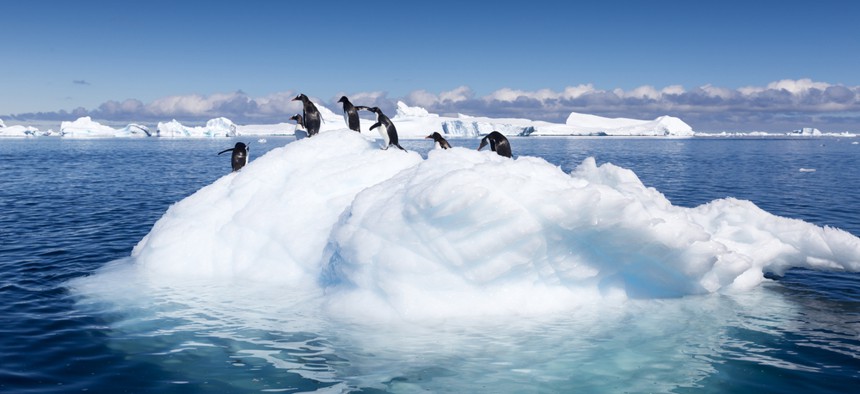
Denis Burdin/Shutterstock.com
Scientists Go Beyond Science to Explain Their Climate Terror
New site hosts handwritten letters from scientists expressing their fears about climate change.
Scientists are used to talking about climate change in facts and figures, a discussion framed around parts-per-million concentrations of carbon dioxide, millimeters of sea-level rise, and degrees of global temperatures.
Joe Duggan wants them to talk about their feelings.
Duggan, a masters of science communication student at the Australian National University, has set up a website hosting handwritten letters in which scientists express their fear, frustration, distress, and confusion about the growing threat of climate change and the politicization of the issue. Take this letter from Andrew Pitman, who directs the ARC Centre of Excellence for Climate System Science at the University of New South Wales:
"In equal measure, climate change makes me feel frustrated that my community cannot overcome ignorance and apathy. I feel scared that I cannot trigger action. I feel scared about what the future brings. But most of all, to be honest, I feel challenged by the science, I feel invigorated by how bright my group is, and I feel very lucky that each day brings new challenges to confront and sometimes to overcome."
In another letter, University of Melbourne professor Kevin Walsh says, "I wish that climate change were not real." If it weren't real, he writes, people wouldn't have to be concerned about flooding from sea-level rise, the threat of climate-linked conflicts, or dwindling clean-water sources.
"Life would be so much simpler if climate change didn't exist. But as scientists, we don't have the luxury of pretending," Walsh's letter concludes.
Duggan said the project is meant to engage the broader public, who despite seeing facts about climate change can feel "apathetic" or simply overwhelmed by the volume of data. He thought that letting experts use an emotional pitch might help the layperson connect with their work.
"The scientists that have penned letters for this project are scared, angry, anxious, and at times hopeful and optimistic," he said in an email. "These are real feelings that everyone has experienced in their lives. But the scientists aren't feeling this way about an anniversary or a pressing deadline. They're feeling this way about the fate of our planet."
Duggan said the experts he's reached out to have expressed "relief" at being able to express their emotions and he's even starting hearing from more researchers who want to participate. He's also been getting responses from the general public on his website and through Twitter.
Given that the Australian Parliament and prime minister last month repealed the nation's carbon tax, Duggan said he's aware of the struggles in convincing the public of the threat of climate change. And while he's not saying that the emotional pitch is the only way to reach a mass audience, he thinks it's an avenue worth exploring.
"It is my belief that we need to fight this battle on a number of fronts," Duggan said. "So many people are apathetic towards climate change; they're aware of its existence but they just can't connect to it."
"If people can't connect with the statistics and data, maybe they can connect with someone who understands that data."
(Image via Denis Burdin/Shutterstock.com)






